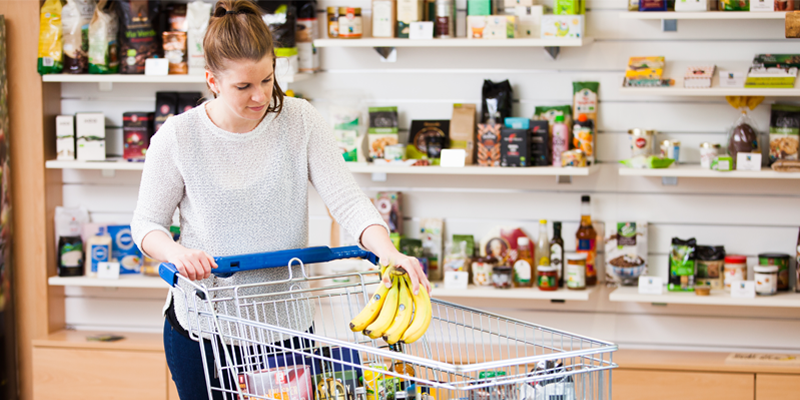84% of consumers have trust in the Fairtrade Mark, and Fairtrade’s work in providing fair prices, a living income and helping farmers to escape from poverty is crucial to this trust.
Bananas are the most visible Fairtrade product in the UK, followed by coffee and chocolate, and the majority of consumers who have seen the FAIRTRADE Mark agree that it has a positive impact on their perceptions of the brand using the label.
Seven in ten people who recall purchasing Fairtrade-certified products would recommend Fairtrade to friends, a significant increase compared to half in 2015.
Julia Nicoara, Interim Director of Public Engagement at the Fairtrade Foundation said: “The data sends a very strong message to companies that, despite political uncertainty at home and abroad, there is a very strong body of shoppers who identify with the values of Fairtrade and want business to play fair.”
The comprehensive cross-continental study of 9,200 consumers was carried out for National Fairtrade Organizations across eight countries by international research and advisory consultancy GlobeScan. Of the brands and retailers spontaneously associated with Fairtrade, Co-op came top. When asked which brands they think offer products carrying the FAIRTRADE Mark, millennials are more likely than other age groups to associate the Fairtrade label with Green & Black’s, Starbucks and Ben & Jerry’s.
Consumers aged between 18 to 24 year olds demonstrate greater trust in the Fairtrade Mark and show more label loyalty. Centennials and millennials are more likely to choose Fairtrade products when they shop.
“People now expect businesses to take their social and environmental responsibilities seriously. More than that, it’s clear that a significant segment of the public is willing to back Fairtrade’s principles of equity and justice in trade by choosing Fairtrade certified products.
“Consumers associate Fairtrade with fair prices living income, good conditions, and support for farmers in developing countries. Where they can, shoppers will reward companies that do the right thing through their purchasing choices, and more than ever seem prepared to influence others with their opinions,” Julia concluded.
The research shows that tea, sugar and dried fruit and nuts are opportunity areas for Fairtrade, as consumers often prefer to purchase Fairtrade certified tea and sugar but they are currently less visible on shop shelves than chocolate, coffee and bananas.
When asked which other products they would like to see carrying the Fairtrade label, fruit and vegetables are the most mentioned items, followed by clothes, shoes and cotton.
GlobeScan conducted the Fairtrade Consumer Perceptions survey during January, February and March 2019 in eight markets: Australia, Canada, Germany, India, New Zealand, Switzerland, UK and USA.
